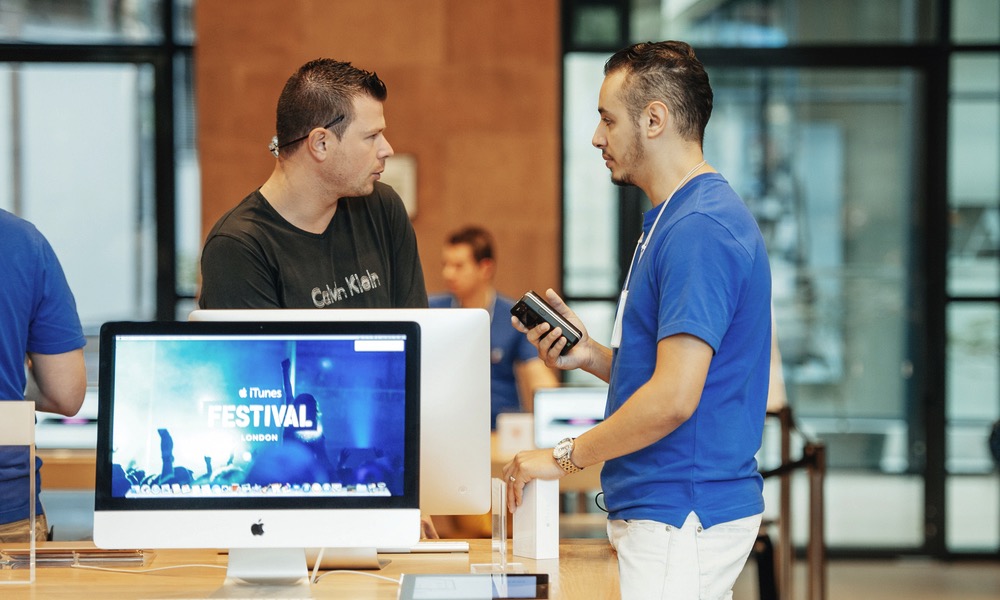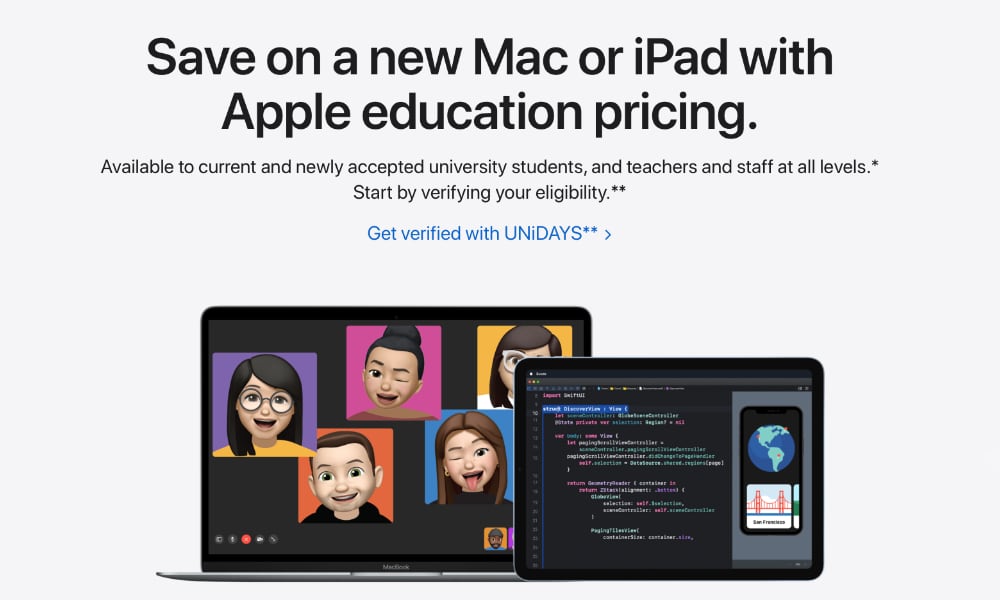You’ll Now Have to Prove That You Qualify for Apple’s Education Discount
 Credit: Hadrian / Shutterstock
Credit: Hadrian / Shutterstock
Toggle Dark Mode
Apple generally works pretty hard to present the image of a friendly and accessible place to buy products from, and in many ways its retail and online stores have always operated at least somewhat on the honour system.
For example, Apple introduced “EasyPay” mobile self-checkout to its stores several years ago, allowing customers to pay for small-ticket items directly on their iPhone and then simply walk out of the store. Many feared at the time that this would lead to even more theft, as it made it much harder to verify whether the product a customer was walking out with had actually been paid for, but Apple clearly decided that a friendlier payment system was worth the risk.
Along the same lines, Apple’s Education Store has always run largely on the same sort of honour system. Walk into an Apple retail store, tell them you’re a teacher or a student, and they’ll generally take your word for it — especially if you look the part. The same was true of Apple’s online store for education.
Of course, that was rife for abuse, especially online. At least when visiting an Apple Store in person, the representative can make a judgment call, and request academic ID if they feel it’s warranted. They tend to err on the side of accepting you at face value, but they’re not required to do so.
At the online store, however, it’s been a free-for-all for years. It’s a pretty well-known loophole in certain circles that just about anybody can get 10% off a MacBook simply by visiting the Education Store. Apple has always said in the fine print that it reserves the right to verify academic credentials, but we’ve never heard of the company ever actually doing so. Certainly not for individual consumer purchases, at least.
However, it looks like the gig is up. A user on Reddit recently noticed that the Apple Education Store now requires verification with UNiDAYS, a third-party service that specializes in confirming enrolment in educational institutions.
The change appears to have come to the U.S. Apple Store over the past couple of days, as it wasn’t there on January 17. As of now, you won’t even be able to see any pricing information until you’ve verified your academic status.
The UNiDAYS requirement isn’t entirely new, however. It’s always been necessary to take advantage of the Apple Music Student Plan, and it’s been mandatory on the Apple Store in other countries, such as the U.K. and France, for several years.
UNiDAYS also appears to be the only way that education customers in the U.S. can verify their eligibility. In other countries like the U.K., Apple offers an alternative method to verify eligibility through an Apple Specialist.
However, even with this change in the U.S., the Apple Store for Education in other countries like Canada remains open without any additional verification needed — at least not yet.
Educational Requirements
The new verification requirement also closes a previous grey area for eligibility, guaranteeing that only those meeting Apple’s requirements will be able to take advantage of educational pricing.
For example, for student purchases, Apple’s Educational Discounts have only ever applied to university students — not those in K-12. In the past, however, many well-meaning parents and teens have either misunderstood this or skirted the rules, feeling that they should qualify in principle when buying a MacBook for someone in grade school or high school.
While K-12 teachers and staff do qualify for Apple’s Educational Pricing, K-12 students do not, and never have. Whether they should be is open to debate, but Apple’s rules are clear.
What’s interesting is that the U.K. Education Store also includes “parents buying for” both “currently and newly accepted university students.” The omission of this from the U.S. page suggests that Apple’s eligibility rules here may be even more strict than they are in other countries.
Purchasing Limits
The new UNiDAYS requirement also means that Apple will be better able to enforce purchasing limits on products bought with educational discounts.
Education customers have always been limited to one desktop, one Mac mini, one laptop, two iPads, and two accessories per year under the educational program, but this was also difficult for Apple to enforce without a persistent identity for the customer.
Over the years, we’ve occasionally heard of Apple denying additional purchases made using the same credit card, but that’s pretty easy for most folks to get around. Generally speaking, it seemed that Apple didn’t really do much to enforce these limits unless it was blatantly obvious, like ordering more than one MacBook in a single transaction.
With UNiDAYS, however, each customer gets a permanent ID, so it’s safe to assume that Apple will begin associating educational purchases with the customer’s unique UNiDAYS credentials.
To be fair, the limits are generous enough that most legitimate customers won’t have any problems purchasing under the education plan for personal use, and it seems pretty clear that Apple’s intention is to prevent abuse of the program even by legitimate students and teachers purchasing additional Apple devices at a discount for friends and family members.








